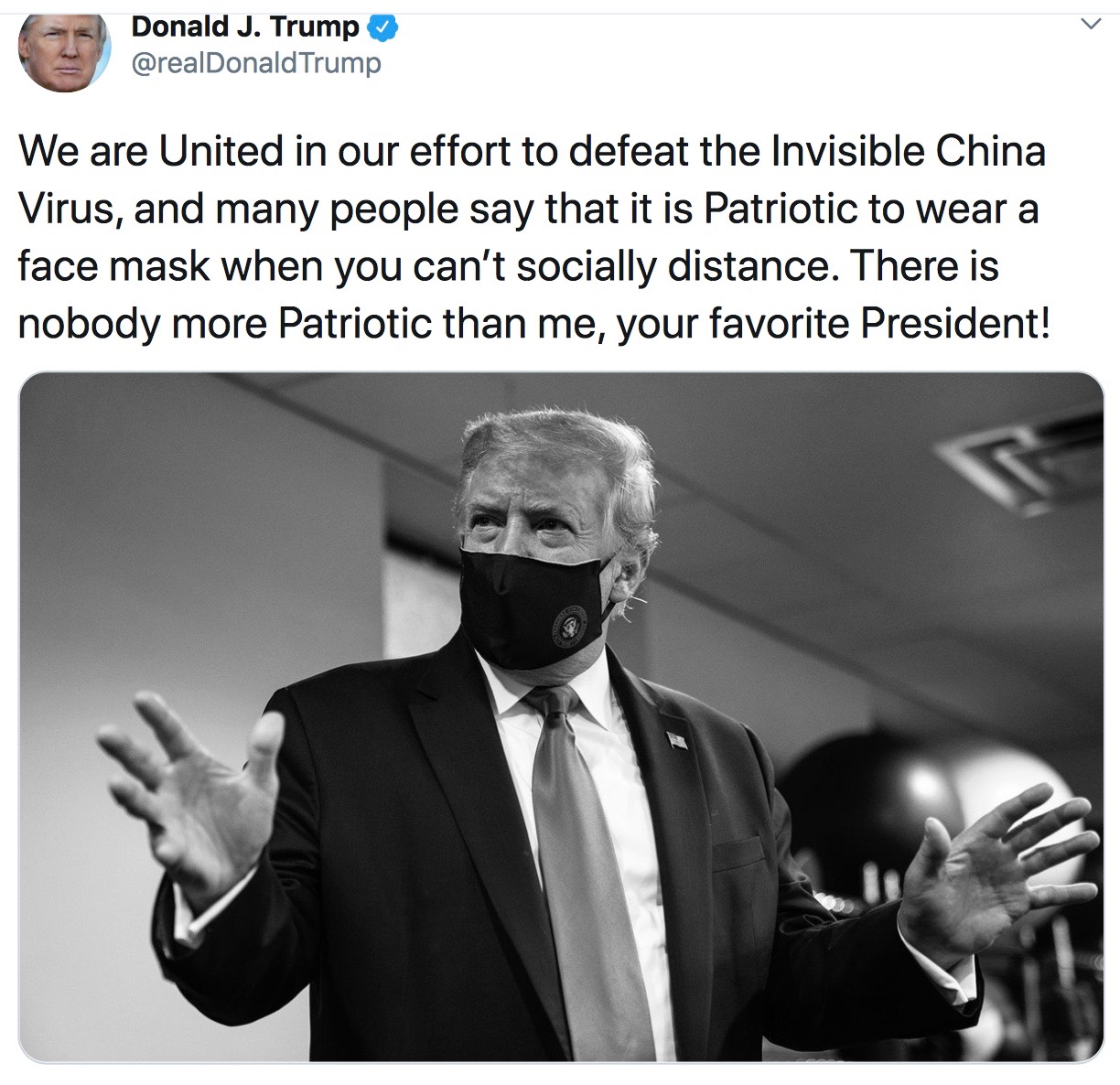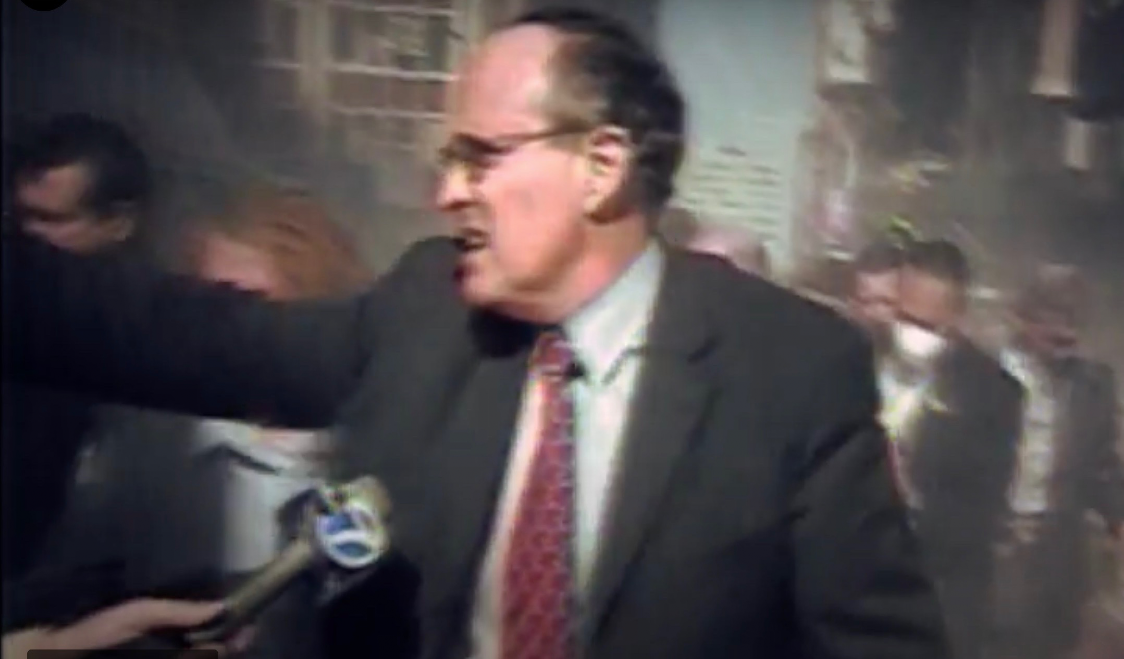The most incredible irony in this entire COVID-19 fiasco is that all along it has been a massive political gift that President Trump refuses to unwrap.
When a larger-than-life crisis strikes, leaders are remembered for how they lead — or don’t.
Whether you love former Mayor Rudolph Giuliani or hate him, nothing will change the indelible image that most Americans have of him in the immediate aftermath of the 9/11 attacks.
Giuliani confidently strode the streets of New York, barking out orders and looking like he was totally in charge. He also exhibited sincere public expressions of grief for the victims and for his beloved city. People could feel it.
It didn’t matter that Giuliani might have played a substantive role in the city not being properly prepared for such a crisis. What mattered was that he looked decisive in the moment. That it looked like he was taking dramatic action, while President Bush was still trying to find his voice.
Bob Kerrey was a Vietnam War veteran, Democratic Governor and US Senator, and was a member of the 9/11 Commission. Of Giuliani’s response to that horrific attack on our country, Kerrey said:
“Trust me, the range of possibilities for leaders is quite extreme: Some panic, some get paralyzed. Giuliani was brave and reassuring, and you can’t subtract that from his résumé.”
It’s the reason that he was dubbed “America’s Mayor.”
It is almost axiomatic that elected officials, especially the ones who serve in powerful executive roles, actually want to be faced with high profile crises. These leaders have big egos and they give plenty of thought to how they’re going to be remembered by history.
Who are the most highly rated American presidents — consistently? Washington, Lincoln and FDR. Three very different men, from different parts of the country, from different centuries, who faced different national challenges. But they are all remembered for their steadfast leadership in the face of events that challenged the very survival of the United States.
George W. Bush is usually ranked in the mid-thirties out of our 45 commanders-in-chief. He said some nice words atop the rubble, finally, and then went to war with two countries in response to 9/11. He even got reelected. But his mishandling of that crisis — not to mention Hurricane Katrina — were the biggest reasons why he is not more well regarded among his presidential peers.
During Donald Trump’s first three years, he presided over one of the most controversial and disruptive presidential terms this country has ever witnessed. Love him or despise him, it’s been nearly impossible to ignore him.
Trump adores power. This is not a subjective assertion. He talks about it constantly. But what he doesn’t like is taking responsibility — not for anything bad. Not on his watch.
A pandemic is bad. Yet similar to a national security crisis, it’s how a leader reacts that ultimately determines how bad the consequences will be.
When Trump calls himself a “wartime president” due to COVID-19, it shows that on some level he understands the gravity of the moment. The tragic part of it is that the man who daily brags about his toughness, ended up cowering and deferring power when America most needed him to exercise his authority and singularly powerful platform.
As a kid, Trump was a great baseball player. The coronavirus was the equivalent of a big, fat political fastball over the middle of the plate — and the president whiffed it by a foot.
When COVID-19 hit, the president ignored it and made moronically naive observations about its potential danger — even though the evidence was in from other countries.
He took one arguably serious step in shutting down travel from China. He’s boasted about it ever since, while avoiding every other hard decision he sidestepped while pitting red and blue America against one another.
When you stop and think about the enormous political opportunity he was presented, it’s actually breathtaking that he didn’t see it and take advantage of it.
Over the weekend, the death count in America crossed 140,000. On Sunday, Trump gave an hour-long FOX News interview where he endorsed the wearing of masks. Sort of. He also said that they “cause problems.” No one knows what he was talking about.
While he’s refused to wear a mask in nearly every public setting imaginable and while he told FOX News that he won’t mandate mask-wearing, today Trump sent out a tweet wearing a mask and recommending others to do the same.
But even this was a backhanded expression.

The usual. Mis-capitalizations, a barely coded ethnic slur, and a “many people say” instead of him saying something himself.
Also, no apology. For what? For not “Uniting” the country five months ago on this point. For not going on every FOX News show and looking directly into the camera and telling his own supporters to get with the national program and fight back as one country against a virus that does not care about politics — only vulnerable immune systems.
If Trump had taken charge in mid-March and put the hammer down, he might be remembered as more than a bigoted, simple-minded man who would do nearly anything to win. He might have been remembered as the guy who got serious at just the right moment. The guy who, even though he seemed to be winking and playing a political game all along, all of a sudden heard the call to lead — and stepped up to the plate like Babe Ruth. His name could have been candy-bar worthy.
But he didn’t step up. Instead, he served up the usual Snickers and let the political gift slip right through his Butterfingers.
Could Trump really have unified the Divided States of America? The ones that he’s actually divided further during his presidency? Would the “Don’t tread on me” governors and loyal Trumpers who prize their “individualism” over the collective good actually listen to him? Would they have followed his orders? Or at least his requests?
We may never know. There’s still time — but not much. Today Donald Trump finally took the bow off the package with his anemic tweet about mask-wearing. After he did, former CDC Director Tom Frieden said we’ll need a lot more:
“The more we have a coherent response and coherent messaging, the better we can fight the virus. There’s only one enemy here, and that’s the virus. And the more we are divided, the more the virus can conquer.”
Will Trump take additional steps? The political gift might be stale at this point — but it might not. There’s only one way to find out.
History is waiting and watching, Mr. President. Keep unwrapping.


